Isfahan centrifuge site struck amid Israel's bombing campaign, says IAEA
Israel says it's striking military infrastructure in southwest Iran on day nine of war sparked by its initial attack
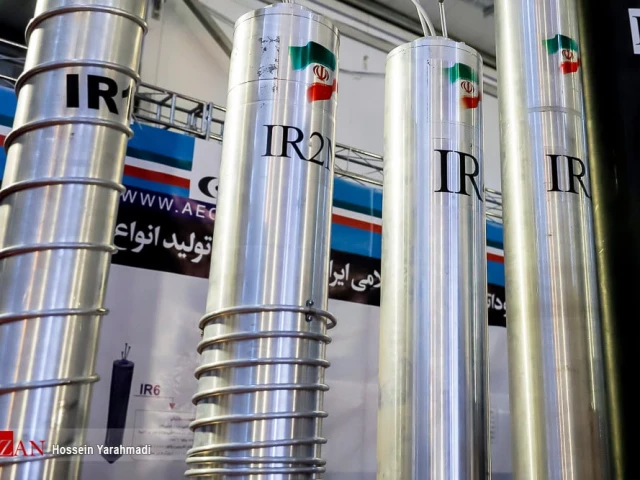
The UN nuclear agency confirmed on Saturday that a centrifuge manufacturing workshop at Iran's Isfahan nuclear site had been hit, in the latest strike amid Israel's bombing campaign.
"A centrifuge manufacturing workshop has been hit in Esfahan, the third such facility that has been targeted in Israel's attacks on Iran's nuclear-related sites over the past week," the Vienna-based International Atomic Energy Agency (IAEA) said in a statement quoting its chief Rafael Grossi.
"We know this facility well. There was no nuclear material at this site and therefore the attack on it will have no radiological consequences," Grossi was quoted as saying
The United Nations said on Saturday the Iran-Israel war must not trigger another refugee crisis in the Middle East. UNHCR reported population movements from Tehran and other regions, with some crossing borders.
"This region has already endured more than its share of war, loss and displacement," said Filippo Grandi, the UN High Commissioner for Refugees.
The Israeli-initiated conflict with Iran continued to escalate early Saturday, with both sides exchanging fresh strikes, even as diplomatic efforts in Geneva stalled with no breakthrough on a ceasefire.
At least 430 people were killed and 3,500 were wounded in Iran since the start of the Israeli-Iranian conflict on June 13, Iranian state-run Nour News reported on Saturday, citing the country's health ministry. Israel has on the other hand reported 24 deaths with more than 800 others injured.
The Human Rights Activists News Agency, a US-based rights organisation that tracks Iran, gave a higher death toll than Tehran, saying Israeli attacks have killed 639 people there. Those killed in Iran include the military's top echelon and nuclear scientists.
Iran's drone attack
An Iranian missile triggered a fire in a residential building in central Israel, prompting evacuations and emergency response, though no casualties were reported.
The fire, believed to be caused by debris from an intercepted missile, came amid ongoing aerial exchanges. Sirens rang out across central and southern Israel as five ballistic missiles were fired from Iran, according to Israeli officials, with no immediate damage or injuries reported aside from the Holon fire.
Iran's missile strikes were in retaliation to Israeli air assaults targeting Iran's nuclear infrastructure. Sirens were heard across southern Israel as the emergency service reported that five ballistic missiles had been fired. No immediate damage or casualties were reported from the missile launches.
The residents evacuated the building. So far, no physical injuries have been found. MDA teams are providing medical care on site to several individuals suffering from anxiety and are continuing to search for additional casualties.
— Magen David Adom (@Mdais) June 21, 2025
The escalation follows an intense week of aerial warfare, with Israel targeting military and nuclear sites in Iran. The Israeli Defense Forces (IDF) have confirmed they had targetted numerous Iranian missile systems and radar installations as part of its strategy to curb Tehran’s nuclear ambitions, which Israel and its allies claim are aimed at producing nuclear weapons—an assertion Tehran denies.
✈️ The IAF continues its mission to maintain aerial superiority in Iranian airspace.
— Israel Defense Forces (@IDF) June 20, 2025
Fighter jets struck several Iranian missile systems and radar installations in the areas of Isfahan and Tehran, which were intended to target IDF aircraft and disrupt their operations.
This… pic.twitter.com/bbo9njUgDC
The latest missile attack on Israel, which ignited a fire in Holon near Tel Aviv, is part of Iran’s ongoing retaliation. Interceptions over Tel Aviv were visible in the skies, with explosions reverberating across the city as Israel’s air defence systems engaged the incoming threats.
Iran targets Ben Gurion Airport, Israeli military centres in fresh strikes
Iran’s Islamic Revolutionary Guards Corps (IRGC) said it launched a fresh wave of missile and drone strikes early Saturday, targeting Ben Gurion Airport and key Israeli military sites as part of the 18th phase of "Operation True Promise 3."
Another Iranian drone struck a residential building in northern Israel, rescue services said. The attack came amid a wave of drone and missile launches.
In its 15th statement since hostilities escalated, the IRGC claimed successful hits on logistics centres and airport infrastructure using Shahed-136 drones and precision-guided missiles.
Iran said Israel’s defence systems failed to stop the strikes, prompting civilians to seek shelter. Israeli media reported that six of ten missiles struck their targets.
Israeli defence minister says military killed head of IRGC Palestine Corps
Israel’s Defence Minister Israel Katz announced on Saturday that the military killed Saeed Izadi, a veteran commander leading the Palestine Corps of Iran’s Quds Force, in a strike on an apartment in Qom, Iran. The IRGC has not confirmed the report.
The Quds Force, known for building the Axis of Resistance network including Hezbollah and Hamas, has faced significant setbacks amid Israeli offensives since Hamas’ October 7, 2023 attacks.
Military targets attacked in Iran
Several "powerful explosions" were heard Saturday afternoon in southwestern Iran's Ahvaz, the daily Shargh reported. Ahvaz is the capital of Khuzestan province, Iran’s main oil-producing region near the Iraqi border.
Israeli military says it has attacked dozens of military targets in southwestern Iran with more than 50 munitions.
Israeli military says it has completed another series of strikes in southwestern Iran.
Iran lodges complaint against IAEA chief over bias on nuclear issue
Iran’s envoy to the UN, Amir Saeid Iravani, has filed a formal complaint with the UN Security Council against IAEA Director General Rafael Grossi, accusing him of bias and failure to uphold the agency’s impartiality, according to iran's semi-official Mehr News Agency.
Several "powerful explosions" were heard Saturday afternoon in southwestern Iran's Ahvaz, the daily Shargh reported. Ahvaz is the capital of Khuzestan province, Iran’s main oil-producing region near the Iraqi border.
The letter cited Grossi’s silence over previous Israeli threats, including the use of nuclear weapons, while accusing him of maintaining a “politicised, selective, and discriminatory” stance toward Iran. Iran warned the IAEA’s credibility is being eroded due to what it calls repeated violations of neutrality by its chief.
Geneval talks
In Geneva, Iranian Foreign Minister Abbas Araghchi met with European leaders to address the ongoing conflict. The talks, however, yielded little progress, with Araghchi reaffirming that Iran would not engage in negotiations until Israel ceases its military actions. He expressed concern over Europe's failure to condemn Israeli strikes, suggesting that Tehran would only return to diplomatic talks once "aggression stops."
The standoff intensified as US President Donald Trump warned of potential military escalation and set a two-week deadline to decide on possible US involvement.
Meanwhile, Israel’s military chief Eyal Zamir acknowledged the possibility of a prolonged campaign. "The campaign is not over," he said, pointing to the difficulty ahead despite significant achievements in Israel’s air campaign.
Hundreds of US citizens have fled Iran in recent days, as tensions mount and the US government works to assist its citizens. However, the evacuation process has been marred by delays and reports of harassment. The US State Department has not provided further details on the situation.
Iran FM in Turkey for OIC meeting on Israeli aggression
Iranian Foreign Minister Abbas Araghchi arrived in Istanbul on Saturday to attend the 51st session of the Organisation of Islamic Cooperation (OIC) Council of Foreign Ministers.
The two-day summit is expected to focus on recent Israeli strikes on Iranian territory, which Tehran calls “unprovoked aggression.” Araghchi said the attacks forced Iran to respond in self-defence.
While the conflict rages on, diplomatic efforts continue, with world leaders urging both sides to de-escalate.
Israel’s ambassador to the UN, Danny Danon, has pledged continued military action until Iran’s nuclear threat is neutralised, further complicating prospects for a ceasefire. Iranian officials have called for Security Council intervention, while Russia and China have urged a diplomatic resolution.
Turkiye's Erdogan says Israel attacks aimed to sabotage Iran nuclear talks
Turkish President Tayyip Erdogan said on Saturday that Israel's attacks on Iran right before a new round of nuclear talks with the United States aimed to sabotage the negotiations, and it showed Israel did not want to resolve issues through diplomacy.
Speaking at a foreign ministers' meeting of the Organisation of Islamic Cooperation in Istanbul, Erdogan urged countries with influence over Israel not to listen to its "poison" and to seek a solution to the fighting via dialogue without allowing a wider conflict.
He also called on Muslim countries to increase their efforts to impose punitive measures against Israel on the basis of international law and United Nations' resolutions.
Putin warns of growing risk of World War III amid Iran-Israel conflict
Russian President Vladimir Putin warned that escalating tensions in the Middle East could push the world toward World War III.
"There is a high probability of this war occurring, and it is increasing," Putin told reporters, calling the situation deeply concerning.
He added that the Iran-Israel conflict had not significantly impacted oil prices, and OPEC+ intervention was unnecessary. Moscow, he said, is sharing proposals with both Tehran and Tel Aviv to help end the crisis.
US intelligence community divided
The US intelligence community, for its part, remains divided over the status of Iran’s nuclear capabilities. Despite public statements, some reports suggest it would take Iran up to three years to build a nuclear warhead.
The dishonest media is intentionally taking my testimony out of context and spreading fake news as a way to manufacture division. America has intelligence that Iran is at the point that it can produce a nuclear weapon within weeks to months, if they decide to finalize the… pic.twitter.com/mYxjpJY2ud
— DNI Tulsi Gabbard (@DNIGabbard) June 20, 2025
Many critics have argued the nuclear weapons pretext mirrors the flawed intelligence that led to the Iraq war, raising fears of history repeating itself.
The Iraq war, launched on false claims of weapons of mass destruction, unleashed decades of bloodshed and regional instability that still haunt the region today.
Similar to the Iraq war, other US-led regime change campaigns in Syria and Libya have sparked widespread violence, fueled the rise of terrorism, caused the loss of hundreds of thousands of lives, and left deep-rooted instability that continues to impact the region.
The UN Secretary-General, Antonio Guterres, has meanwhile called on all parties to "give peace a chance."

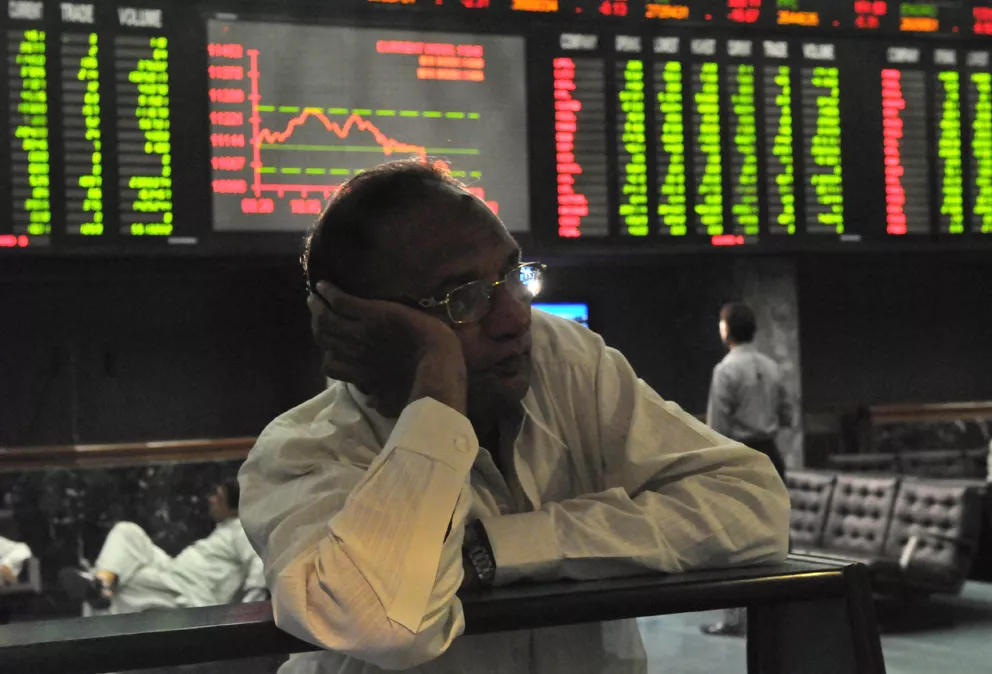





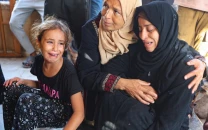
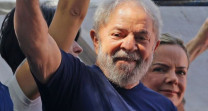

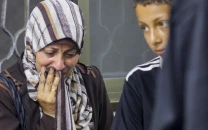
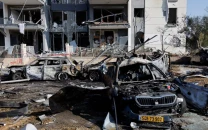












COMMENTS
Comments are moderated and generally will be posted if they are on-topic and not abusive.
For more information, please see our Comments FAQ